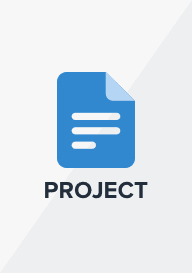
Mid Term Evaluation of “Recovery, Stability and Socio-economic Development in Libya”
Cancelled
Justification: Evaluation was conducted in previous cycle. The project had two No cost extension one until June 2022 and the second one until June 2023. The original end date before the extensions was 30 Sep 2021. Given the Project is ending in June 2023, final evaluation was conducted as apposed to mid term. The evaluation findings will be disseminated to partners and lessons learnt will be applied for similar projects in future.
Evaluation Plan
Planned End Date
Jan 2023
Evaluation Type
Project
Management Response
No
Evaluation Budget
$30,000
Evaluation Title
Mid Term Evaluation of “Recovery, Stability and Socio-economic Development in Libya”
Quantum Project Number
00134471, 00129870, 00112553, 00105858, 00119174, 00127728, 00132428, 00132427
Plan Period
Status
Cancelled
Type
Project
Plan Date
31 Jan, 2023
Budget
$30,000
Expenditure
$0
Source of Funding
EU
Management Response
No
Quality Assessment
No
Joint Programme
No
Joint Evaluation
No
GEF Evaluation
No
Stakeholders
UNSMIL, UNICEF, UN-Women, European Union, Governments of Germany, Italy, France, United States, Japan, United Kingdom, African Development Bank, Ministry of Justice, Ministry of local Governance, Ministry of Economy and Trade, Ministry of Planning Government, Construction Fund, notably for Benghazi and Derna, Local Municipalities CSOs, Libya Chamber of Commerce
Countries
Libya
Quantum Project Number
00134471, 00129870, 00112553, 00105858, 00119174, 00127728, 00132428, 00132427
Plan Period
Status
Cancelled
Type
Project
Management Response
No
Plan Date
31 Jan, 2023
Quality Assessment
No
Joint Programme
No
Joint Evaluation
No
Budget
$30,000
GEF Evaluation
No
Expenditure
$0
Stakeholders
UNSMIL, UNICEF, UN-Women, European Union, Governments of Germany, Italy, France, United States, Japan, United Kingdom, African Development Bank, Ministry of Justice, Ministry of local Governance, Ministry of Economy and Trade, Ministry of Planning Government, Construction Fund, notably for Benghazi and Derna, Local Municipalities CSOs, Libya Chamber of Commerce
Source of Funding
EU
Countries
Libya
Output 3.2 Capacities for conflict prevention and peacebuilding strengthened at regional, national and sub-national levels and across borders
Goal 1. End poverty in all its forms everywhere
1.4 By 2030, ensure that all men and women, in particular the poor and the vulnerable, have equal rights to economic resources, as well as access to basic services, ownership and control over land and other forms of property, inheritance, natural resources, appropriate new technology and financial services, including microfinance
1: Governance
2: Poverty


